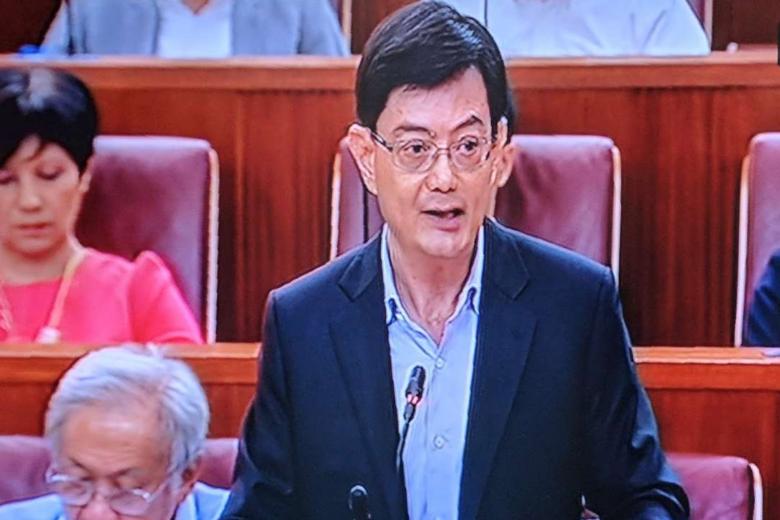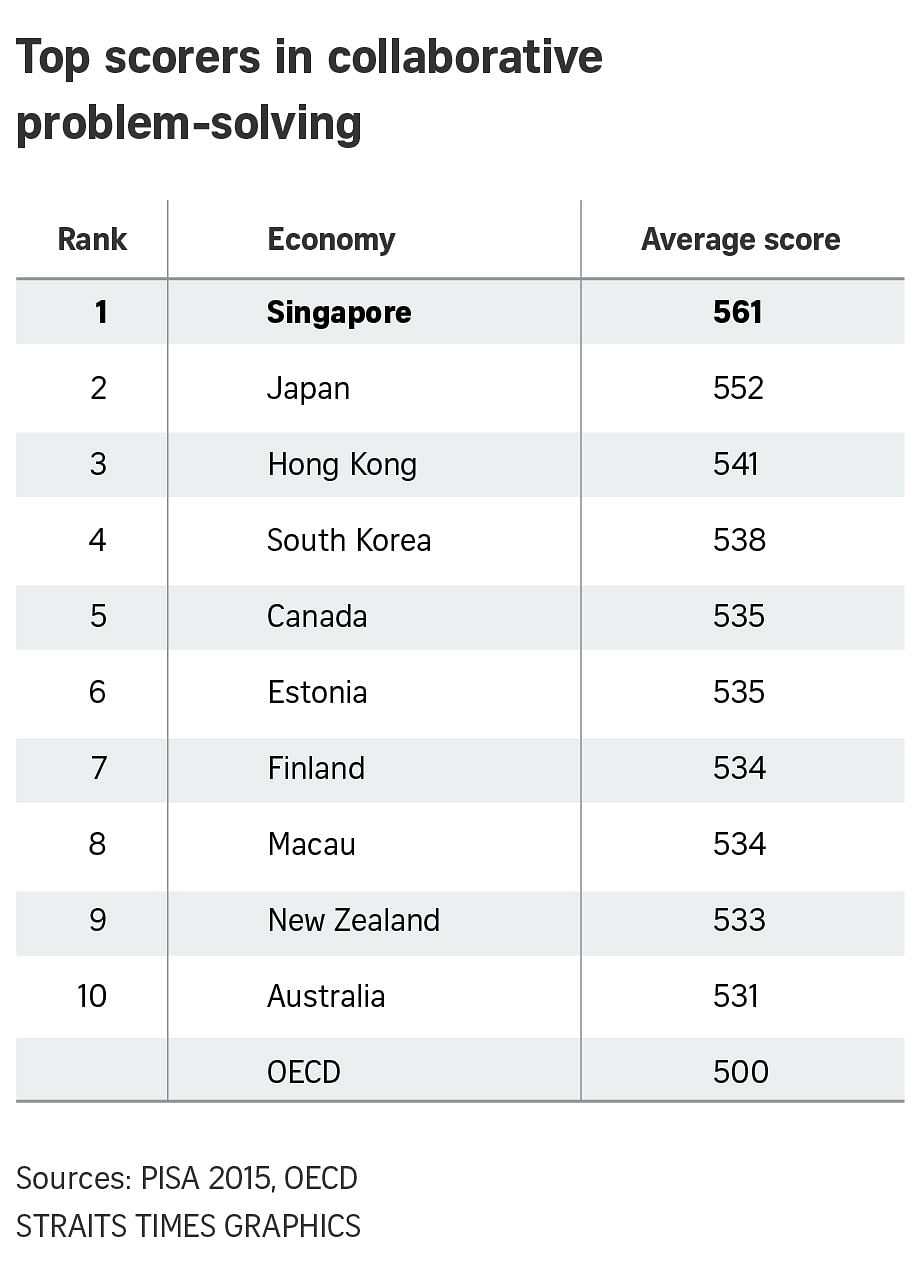Parliament: Singapore must redouble efforts to address slowing mobility, says Heng Swee Keat
Sign up now: Get ST's newsletters delivered to your inbox

Finance Minister Heng Swee Keat said the Government's approach is to give Singaporeans a good chance of realising their potential at various stages in life.
PHOTO: SCREENGRAB FROM LIVESTREAM
Yuen Sin
Follow topic:
SINGAPORE -How Singapore can continue being a society where everyone has the opportunity to do well based on personal efforts and talent, regardless of background, is inextricably linked to its economic strategy, Finance Minister Heng Sweet Keat said on Thursday (March 1).
"We cannot allow social stratification and inequality of opportunity to erode our precious social harmony," said Mr Heng, responding to MPs such as Nominated MP Kok Heng Leun and Ms Jessica Tan (East Coast GRC) who have voiced concerns about this in the Budget debate this week.
Pursuing diversified and broad-based growth creates opportunities for Singaporeans to pursue their aspirations, and is the best way to help all Singaporeans progress in life, Mr Heng said in his round-up Budget speech.
He said: " Rather than focus on how the pie is divided, we should grow the pie so that all can enjoy a larger slice."
However, Mr Heng also acknowledged that Singapore must redouble its efforts to provide opportunities for all to move up in life, as society faces a slowing rate of mobility.
Mr Heng said the Government's approach is to give Singaporeans a good chance of realising their potential at various stages in life.
In the early years, the Government is investing significantly in the early childhood sector to provide children with more accessible, affordable and quality preschool options. This includes the KidStart pilot scheme launched in 2016 , which provides children from low-income families with early access to health, learning and development support.
"We ensure that all our students, whatever their family background and circumstances, have access to a quality education," said Mr Heng.
He noted that a Programme for International Student Assessment (Pisa) studyfound that about half of the 15-year-old Singapore students from the lowest quarter by socioeconomic status performed in the top quarter of students in all countries, after accounting for socio-economic status.
Said Mr Heng: " In other words, our system has enabled them to surpass their international peers in a similar socio-economic position in their own societies."
He also noted that nine in 10 of pupils in the 2000 Primary 1 cohort in the lowest 20 per cent of household by socioeconomic status progressed to post-secondary education, a jump from 50 per cent who did so in 1985.
Mr Heng said the Ministry of Education (MOE) has also been broadening pathways for success, moving beyond fixed streams and an excessive focus on exams to nurture all talents and skills and the holistic development of every student.

The Government is also investing strongly in SkillsFuture to give Singaporeans the opportunity to move to new growth areas in the future economy, he added.
In response to Workers' Party chairman Sylvia Lim, who asked if inequality has become entrenched and called on the Government to commission a longitudinal study to track the fate of families, Mr Heng said the Ministry of Finance has released two occasional papers in 2012 and 2015 on social mobility. It found that cohorts from 1969 to 1982 have experienced good social mobility. The National University of Singapore is also conducting an longitudinal study on how the early childhood education can shape child development and family resilience.
Mr Heng urged Singaporeans to work together to bridge social divides , noting that it is not just a matter of fostering opportunities and closing the income gap.
"As a society, we must be mindful not to allow invisible, intangible divides to fester."
The Government has supported social mixing by investing heavily in common spaces like HDB neighbourhoods, hawker centres and parks.
"Apart from creating common spaces, perhaps the best way to bridge social divides is to nurture our common values, by building a caring society," added Mr Heng.
In response to his speech, Ms Lim said the Pisa report has also shown that poorer students in Singapore lagged further behind fellow Singapore students from better-off backgrounds on average, compared to countries from OECD (Organisation for Economic Co-operation and Development).
"Isn't it not really comforting for poorer students to tell them that they're doing better than their poorer counterparts in other countries when really in their class they're actually further behind than on average?", she asked.
Mr Heng clarified that he is "not saying that we have a perfect education system",but added that it is "right and proper" to look at what Singapore has achieved, rather than what has not been achieved and "pick on that one narrow area and discredit the work that has been going on by so many good people".
After all, the collective efforts of educators, parents and self-help groups have helped students do well not just in academics but also in skills like collaborative problem-solving, where Singapore has been ranked best in the world.
Unlike other countries, which have just one good school where the elites would go to, the performance of students across Singapore's schools demonstrates a high average, he added.
"When I say that every school is a good school, it is not just (the result) of a few good things.
" We must give credit to all our educators, to all our principals and to all our parents for the hard work that they put in so that regardless of which school you go to, the child has the best chance of success. And beyond the basic foundation, as they move into post-secondary education, we have many more pathways for them to excel."

